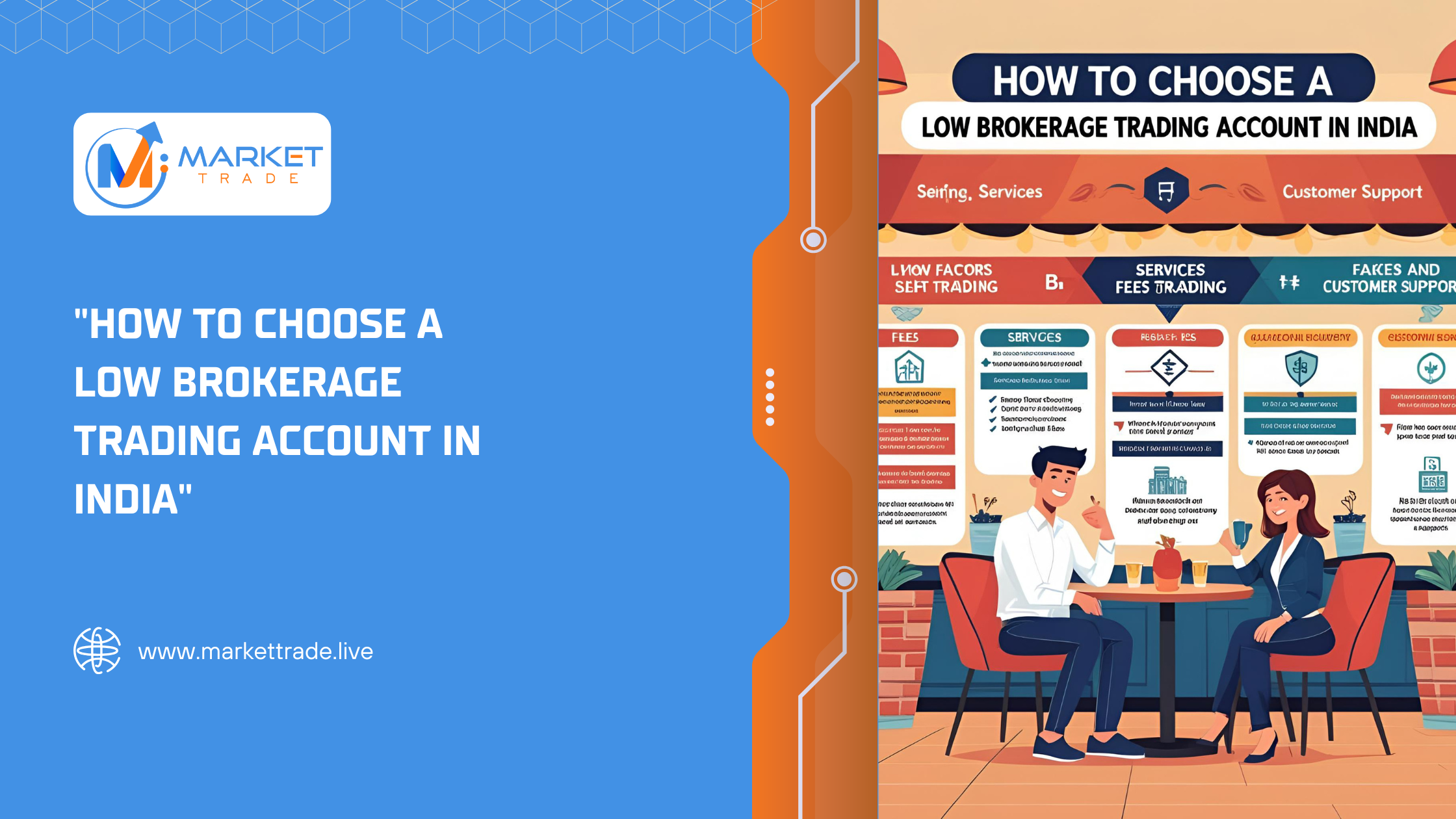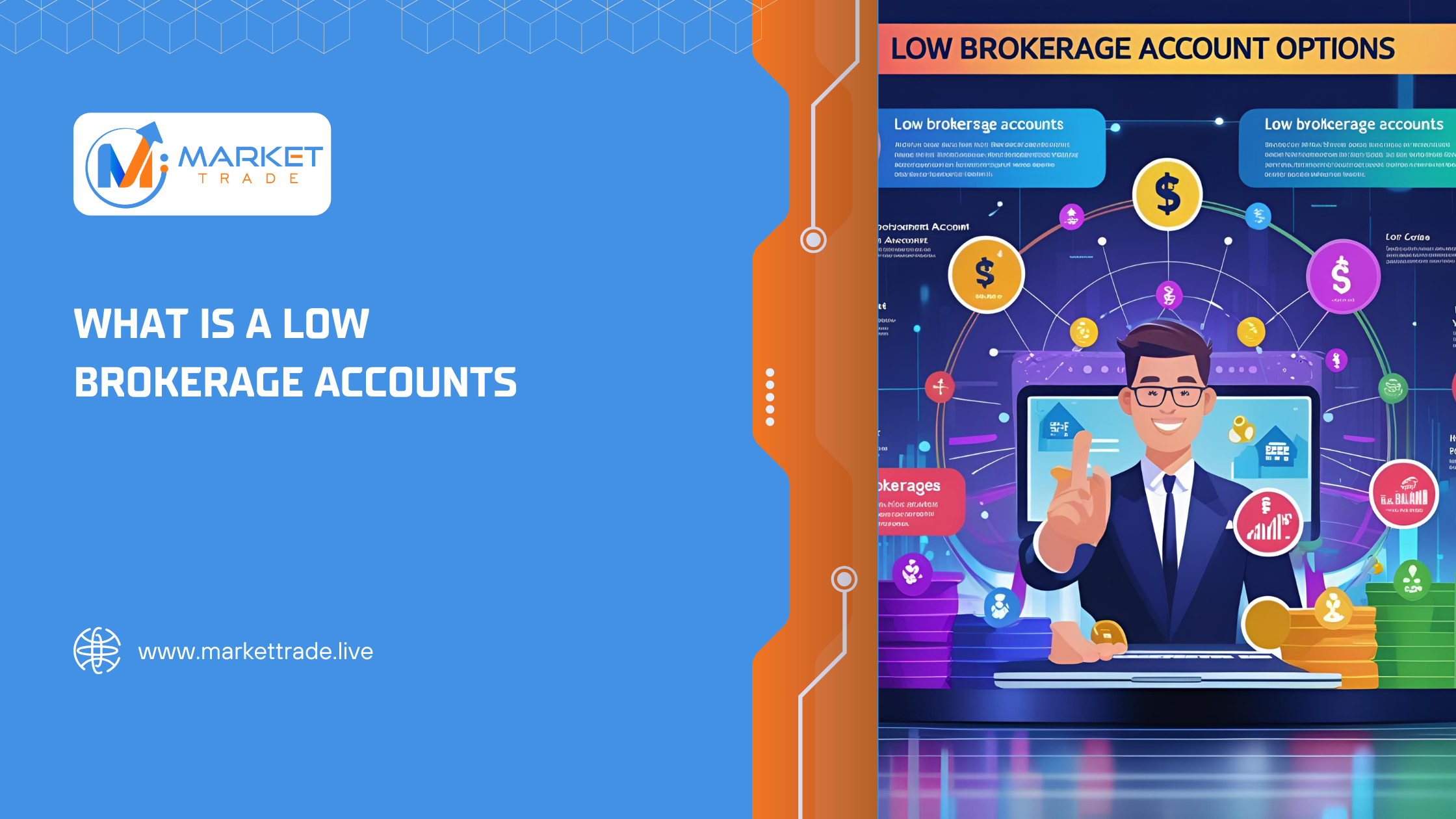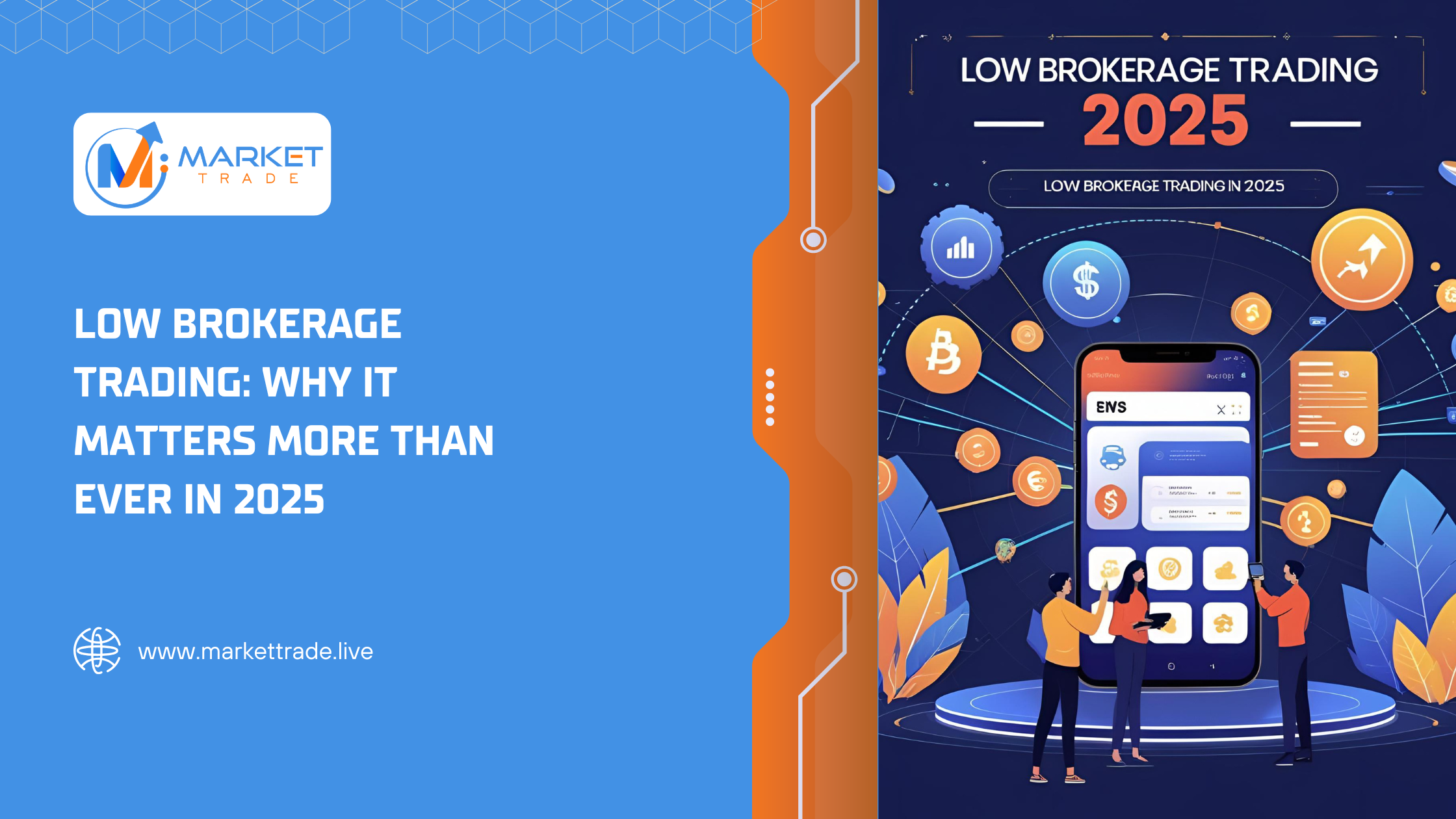
If you’re starting your journey in the stock market or looking to cut costs on trades, choosing a low brokerage trading account is a smart move. In today’s world, where every rupee matters, the kind of trading account you open can directly impact your profits. With dozens of options available, how do you pick the right one? This guide breaks down what to look for, how to compare platforms, and why low brokerage doesn’t mean you have to compromise on quality. 1. What is a Low Brokerage Trading Account? A low brokerage trading account is one where the broker charges minimal fees for executing trades. Instead of paying a high percentage per transaction, you typically pay: ₹0 for equity delivery ₹20 or less for intraday and F&O trades These types of accounts are usually offered by discount brokers who operate primarily online.2. Why It Matters for Retail Traders For retail investors or new traders, even small fees can add up over time. If you trade frequently or with small amounts, high brokerage charges can: Cut into your returns Discourage active trading Limit your ability to diversify Choosing a low brokerage account means you keep more of your gains and can reinvest more confidently. 3. Key Features to Look For When comparing trading accounts, don’t just go for the lowest fee. Here’s what else you should check: 🧾 Transparent pricing: Are there hidden charges? 📱 User-friendly platform: Is the app/web interface simple to use? 💬 Customer support: Can you reach someone quickly if there’s an issue? 📈 Research tools: Do they offer charts, data, and stock screeners? 🔐 Regulatory compliance: Is the broker registered with SEBI? A good low brokerage trading account should balance affordability with functionality and security. 4. Common Mistakes to Avoid ❌ Choosing based only on the brokerage rate ❌ Ignoring platform reviews or user experience ❌ Not checking fund deposit/withdrawal charges ❌ Skipping the fine print on inactivity or annual fees Even a zero brokerage account can become expensive if it charges you in other hidden ways. 5. Questions to Ask Before You Sign Up Before opening a low brokerage account, ask yourself: Do I trade frequently or occasionally? Am I focused on equities, F&O, or commodities? Do I need mobile trading, or am I okay with desktop use? Do I need access to research and learning materials? The answers will guide you to a broker that fits your unique needs. 6. Final Thoughts Choosing the right low brokerage trading account isn’t just about paying less—it’s about trading smarter. By selecting a broker that offers affordable fees, intuitive tools, and solid support, you set yourself up for a better, more confident trading experience. In 2025, as more retail investors enter the market, cost-conscious trading will no longer be optional—it’ll be essential. So take your time, compare wisely, and remember: the right account can help you go further with every trade. Table of Contents What is a Low Brokerage Trading Account? Why It Matters for Retail Traders Key Features to Look For Common Mistakes to Avoid Questions to Ask Before You Sign Up Final Thoughts





